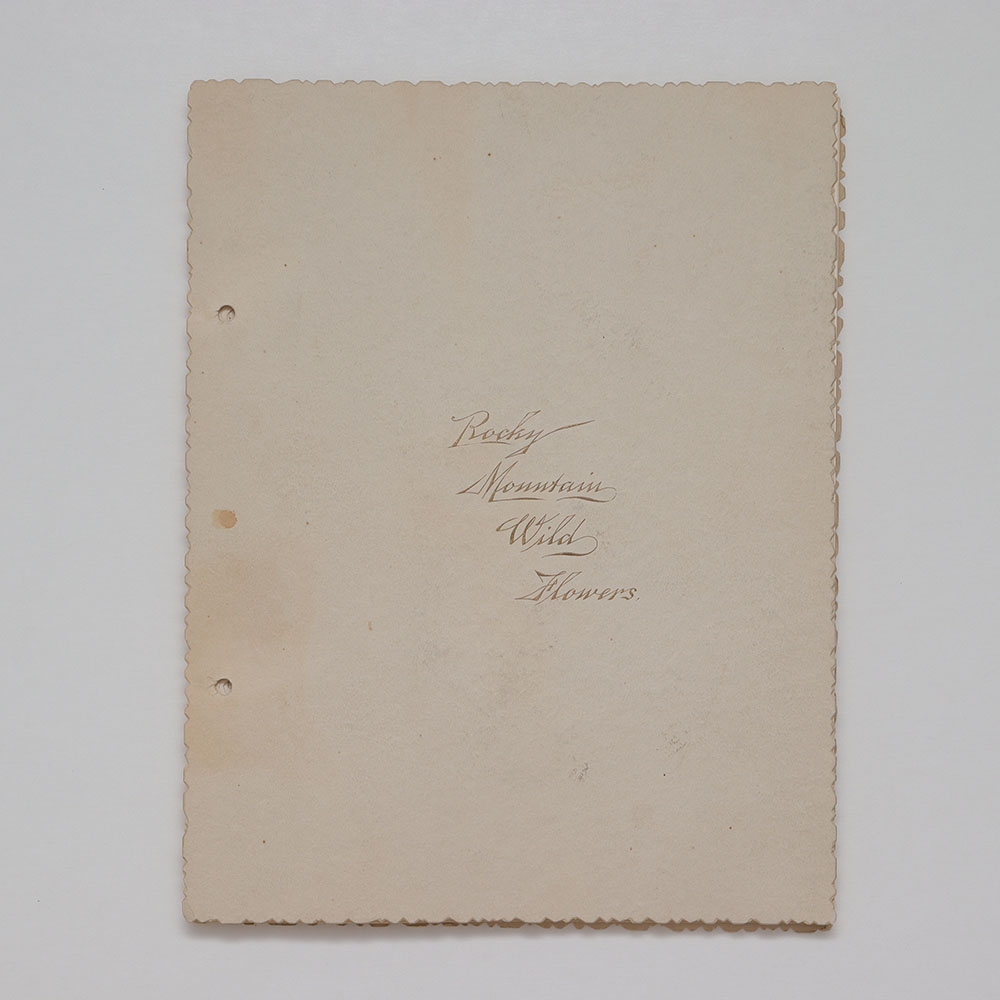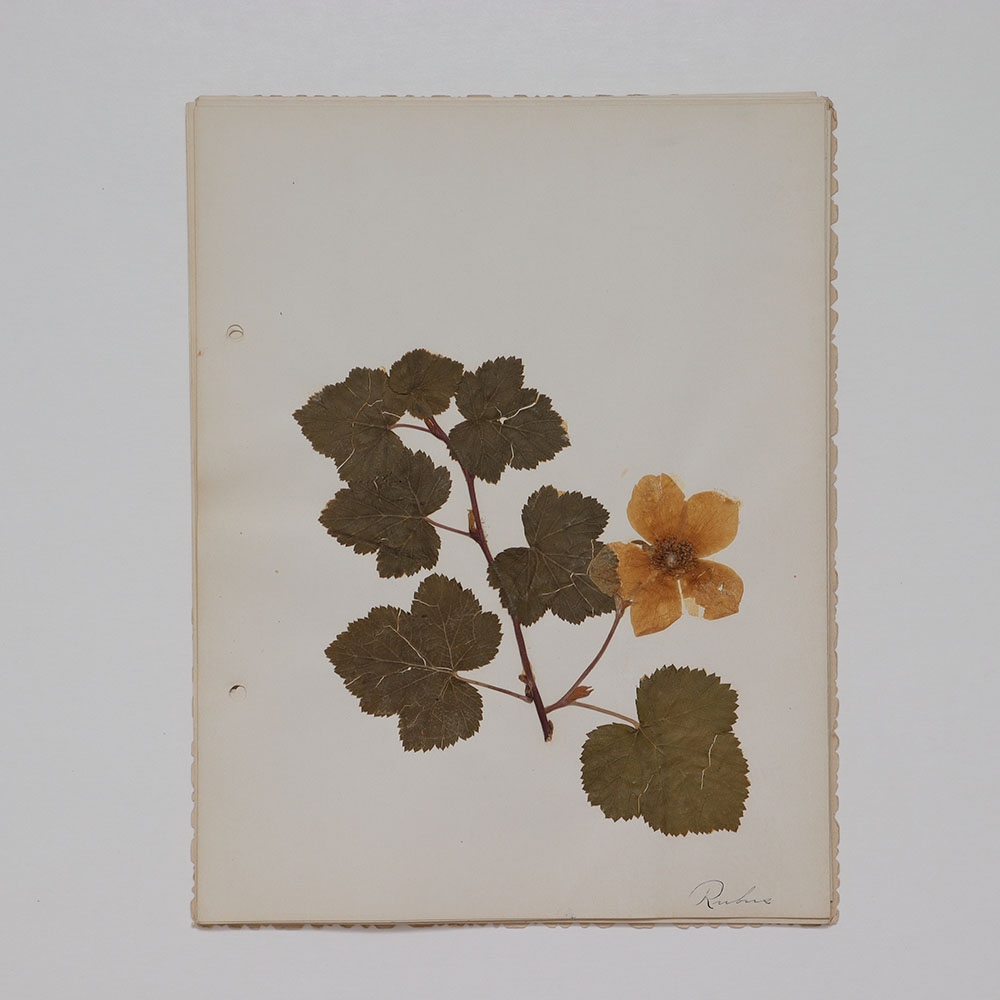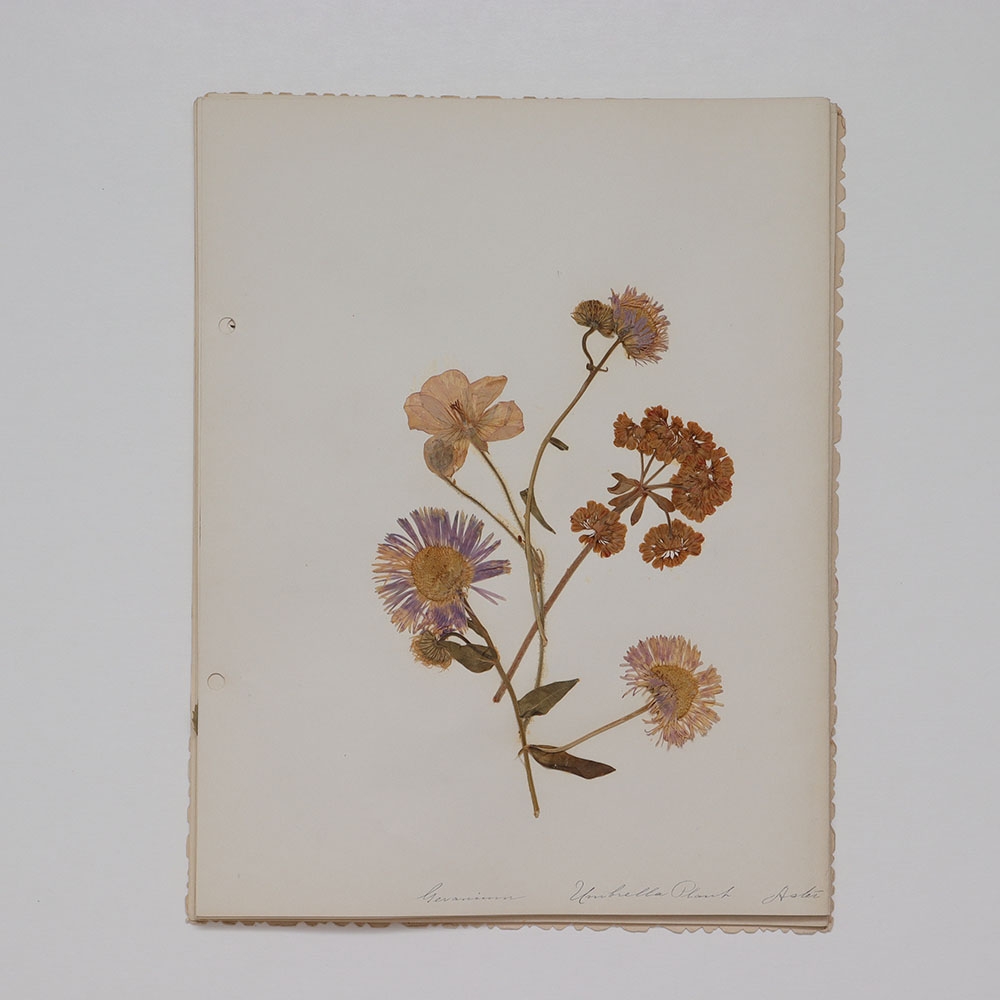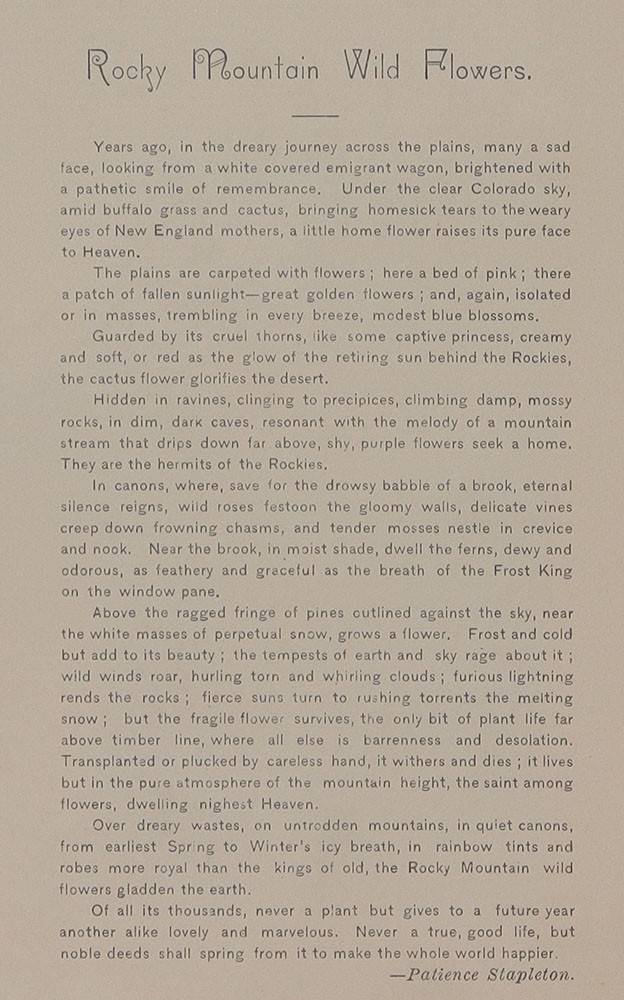From the Vault: Hidden in the Herbarium
Inspired by the fantastic stories of collections highlighted in the 2020 exhibition From the Vault: Wonders and Oddities from the Gardens' Collections, staff working with art, library and natural history collections will be sharing wonders and oddities from the collections online. Each entry in this new blog series will feature a staff-favorite object. Enjoy these peeks into our storage vaults to learn more about our varied collections.
This post is contributed by Ellie Svoboda, student collections assistant, Helen Fowler Library.
The Helen Fowler Library is currently documenting and rehousing its bound herbaria collection. Bound herbaria are volumes of pressed plant specimens that represent particular plant species or geographic areas. The Helen Fowler Library collection includes many herbaria from the late 19th century. One such volume, “Rocky Mountain Wild Flowers,” has an unknown author; however, it features an introductory passage written by a remarkable woman writer of the west, Patience Stapleton.
Excerpt of the introduction entitled “Rocky Mountain Wild Flowers:”
Over dreary wastes, on untrodden mountains, in quiet canons, from earliest Spring to Winter’s icy breath, in rainbow tints and robes more royal than the kings of old, the Rocky Mountain wild flowers gladden the earth.
Born in Maine in 1861, Patience Stapleton (birthname Martha Armstrong Tucker) was an independent woman who could not be restrained by custom. After being educated at a boarding school where she displayed great talent for writing, Stapleton defied her parents’ wishes and moved to Boston in 1878. There, she supported herself as a reporter for daily newspapers and by writing short stories. By 1882, her desire for adventure sent her to Denver where she got a job as a society editor for the Denver Tribune. In 1883 she married William Stapleton, the managing editor of the Denver Rocky Mountain News. They enjoyed a happy marriage and continued to write for newspapers as well as novels and short stories.
Stapleton published several collections of short stories and novels, often featuring strong female protagonists freed by the adventurous atmosphere of the western frontier. These independent women characters reflected her strong feminist leanings. Stapleton became known for her ardent and sound arguments in support of women’s suffrage, stating in the Denver Republican in 1893 how women “are citizens of this country. They are subject to its laws. If it is unjust to subject men to laws in the making of which they have no voice, it is equally unjust to deny women a voice in framing the laws to which they, equally with men, are subject.”
She was also beloved for her descriptions of Western life and the frontier landscape. Unfortunately, Stapleton died prematurely in 1893 following a surgery on a tumor that had been plaguing her. But her convictions and beautiful prose live on, including a small excerpt in our bound herbaria collection.
Funding for the Student Assistant provided by Institute of Museums and Library Services Award MA-30-18-0410-18.
Gallery





Add new comment